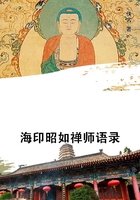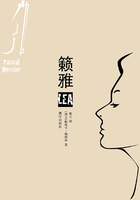If we would study with profit the history of our ancestors, we must be constantly on our guard against that delusion which the well known names of families, places, and offices naturally produce, and must never forget that the country of which we read was a very different country from that in which we live. In every experimental science there is a tendency towards perfection. In every human being there is a wish to ameliorate his own condition. These two principles have often sufficed, even when counteracted by great public calamities and by bad institutions, to carry civilisation rapidly forward. No ordinary misfortune, no ordinary misgovernment, will do so much to make a nation wretched, as the constant progress of physical knowledge and the constant effort of every man to better himself will do to make a nation prosperous. It has often been found that profuse expenditure, heavy taxation, absurd commercial restrictions, corrupt tribunals, disastrous wars, seditions, persecutions, conflagrations, inundations, have not been able to destroy capital so fast as the exertions of private citizens have been able to create it. It can easily be proved that, in our own land, the national wealth has, during at least six centuries, been almost uninterruptedly increasing; that it was greater under the Tudors than under the Plantagenets; that it was greater under the Stuarts than under the Tudors; that, in spite of battles, sieges, and confiscations, it was greater on the day of the Restoration than on the day when the Long Parliament met; that, in spite of maladministration, of extravagance, of public bankruptcy, of two costly and unsuccessful wars, of the pestilence and of the fire, it was greater on the day of the death of Charles the Second than on the day of his Restoration. This progress, having continued during many ages, became at length, about the middle of the eighteenth century, portentously rapid, and has proceeded, during the nineteenth, with accelerated velocity. In consequence partly of our geographical and partly of our moral position, we have, during several generations, been exempt from evils which have elsewhere impeded the efforts and destroyed the fruits of industry. While every part of the Continent, from Moscow to Lisbon, has been the theatre of bloody and devastating wars, no hostile standard has been seen here but as a trophy. While revolutions have taken place all around us, our government has never once been subverted by violence. During more than a hundred years there has been in our island no tumult of sufficient importance to be called an insurrection; nor has the law been once borne down either by popular fury or by regal tyranny: public credit has been held sacred: the administration of justice has been pure: even in times which might by Englishmen be justly called evil times, we have enjoyed what almost every other nation in the world would have considered as an ample measure of civil and religious freedom. Every man has felt entire confidence that the state would protect him in the possession of what had been earned by his diligence and hoarded by his selfdenial. Under the benignant influence of peace and liberty, science has flourished, and has been applied to practical purposes on a scale never before known. The consequence is that a change to which the history of the old world furnishes no parallel has taken place in our country. Could the England of 1685 be, by some magical process, set before our eyes, we should not know one landscape in a hundred or one building in ten thousand. The country gentleman would not recognise his own fields. The inhabitant of the town would not recognise his own street. Everything has been changed, but the great features of nature, and a few massive and durable works of human art. We might find out Snowdon and Windermere, the Cheddar Cliffs and Beachy Head. We might find out here and there a Norman minster, or a castle which witnessed the wars of the Roses. But, with such rare exceptions, everything would be strange to us. Many thousands of square miles which are now rich corn land and meadow, intersected by green hedgerows and dotted with villages and pleasant country seats, would appear as moors overgrown with furze, or fens abandoned to wild ducks. We should see straggling huts built of wood and covered with thatch, where we now see manufacturing towns and seaports renowned to the farthest ends of the world. The capital itself would shrink to dimensions not much exceeding those of its present suburb on the south of the Thames. Not less strange to us would be the garb and manners of the people, the furniture and the equipages, the interior of the shops and dwellings. Such a change in the state of a nation seems to be at least as well entitled to the notice of a historian as any change of the dynasty or of the ministry.26One of the first objects of an inquirer, who wishes to form a correct notion of the state of a community at a given time, must be to ascertain of how many persons that community then consisted. Unfortunately the population of England in 1685, cannot be ascertained with perfect accuracy. For no great state had then adopted the wise course of periodically numbering the people. All men were left to conjecture for themselves; and, as they generally conjectured without examining facts, and under the influence of strong passions and prejudices, their guesses were often ludicrously absurd. Even intelligent Londoners ordinarily talked of London as containing several millions of souls. It was confidently asserted by many that, during the thirty-five years which had elapsed between the accession of Charles the First and the Restoration the population of the City had increased by two millions.27 Even while the ravages of the plague and fire were recent, it was the fashion to say that the capital still had a million and a half of inhabitants.28 Some persons, disgusted by these exaggerations, ran violently into the opposite extreme.
同类推荐
热门推荐
银河相会:七夕节(文化之美)
中国传统节日中有一个十分浪漫的节日,那就是七夕节,牛郎与织女相会的日子,常常被称为“中国的情人节”,近年来也受到众多年轻人的追捧。本书中,编者全面整理了七夕节的起源与演变过程,它形式多变的“乞巧”方式,还有各地各民族不同的七夕节风俗,相信读者们将对七夕有不一样的了解。神雕侠侣(第三卷)(纯文字新修版)
南宋末年,江南少年杨过被郭靖送去全真教学武。全真教教规森严,天性叛逆的杨过在教中吃尽苦头,忍无可忍,终于逃出全真教。被活死人墓中的小龙女收留为徒。师徒二人在墓中一起练武、一起长大,渐生情愫。但师徒通婚违背宋朝礼教,二人爱情不能为世俗所容,其间尝尽聚合离散之苦,杨过更得知了父亲身死的真相,但在国仇家恨的权衡中明白了更多。杨龙二人的感情一再波折,最终分离十六年。二人十六年后重逢,无限欣喜……杨过带着小龙女离开深渊,前往襄阳。杨过以高强武功,于万军之中杀死蒙古皇帝,蒙古大军顿时崩溃,在襄阳就要失守时解了襄阳十六年的围困。经此一役,神雕侠侣天下扬名,杨过却带着小龙女悄然隐退……君唤
前世的于君唤是九国金牌特工,暗影无踪,鬼魅如斯,狂放不羁,“你的命,我的了”,却乌龙的穿到了小说中,本想顶着相府小姐的身份混日子,却为何总有脑残白莲来找打?为何?于是在一次又一次的被白莲的恶心无下限给刷新世界观后,某君怒了,于是养花、种草、虐莲便成了日常。但为何这里的剧情如此眼熟?等等,这好像是自己写的那本书吧。意识到这一点的某君晕了。好了,以上只是女主角刚穿来时的一小点点的迷糊,其实女主还是很厉害滴。ps:“好好享受你们现在的骄傲吧,因为不久后我天漓的铁骑将踏遍你们的每一寸土地,将你们的骄傲从你们那丑陋的脸上撕下,踏碎。”万国盛宴上她墨发飞扬,红衣似火,却撩乱了哪家儿郎的心湖?“我就是我,冷血,无情,残忍肆虐。可,你奈我何。”玉骨凤翎扇后她唇角微勾,邪气肆意,却误了谁家少年。“阿君”,他眉目温柔的注视着前方那抹倩影,清冽的嗓音沁人心脾“回家了”。———————————————注意注意,本文绝对身心俱净,欢迎喜欢的小伙伴们入坑。籁雅
帕斯卡·梅西耶(Pascal Mercier)以他的小说《里斯本夜车》征服了百万读者。在这本书中,他要讲述的是籁雅的故事。母亲去世后,籁雅开始走上成为出色小提琴演奏者的道路,一个辉煌的职业生涯正在前面招手。虽然有一心为女儿着想的好父亲,也遇到了玛丽和列维这样的良师,籁雅的悲剧命运却似乎不可阻挡,就像那把价值连城的瓜奈利小提琴一样不堪一击……究竟是什么铸就了互相深爱的父女二人的不幸?帕斯卡·梅西耶在这部小说中将哲学反思、心理洞察及精湛的叙事艺术成功地融为一体,使之成为又一部为读者带来独一无二阅读体验的优秀文学作品。















